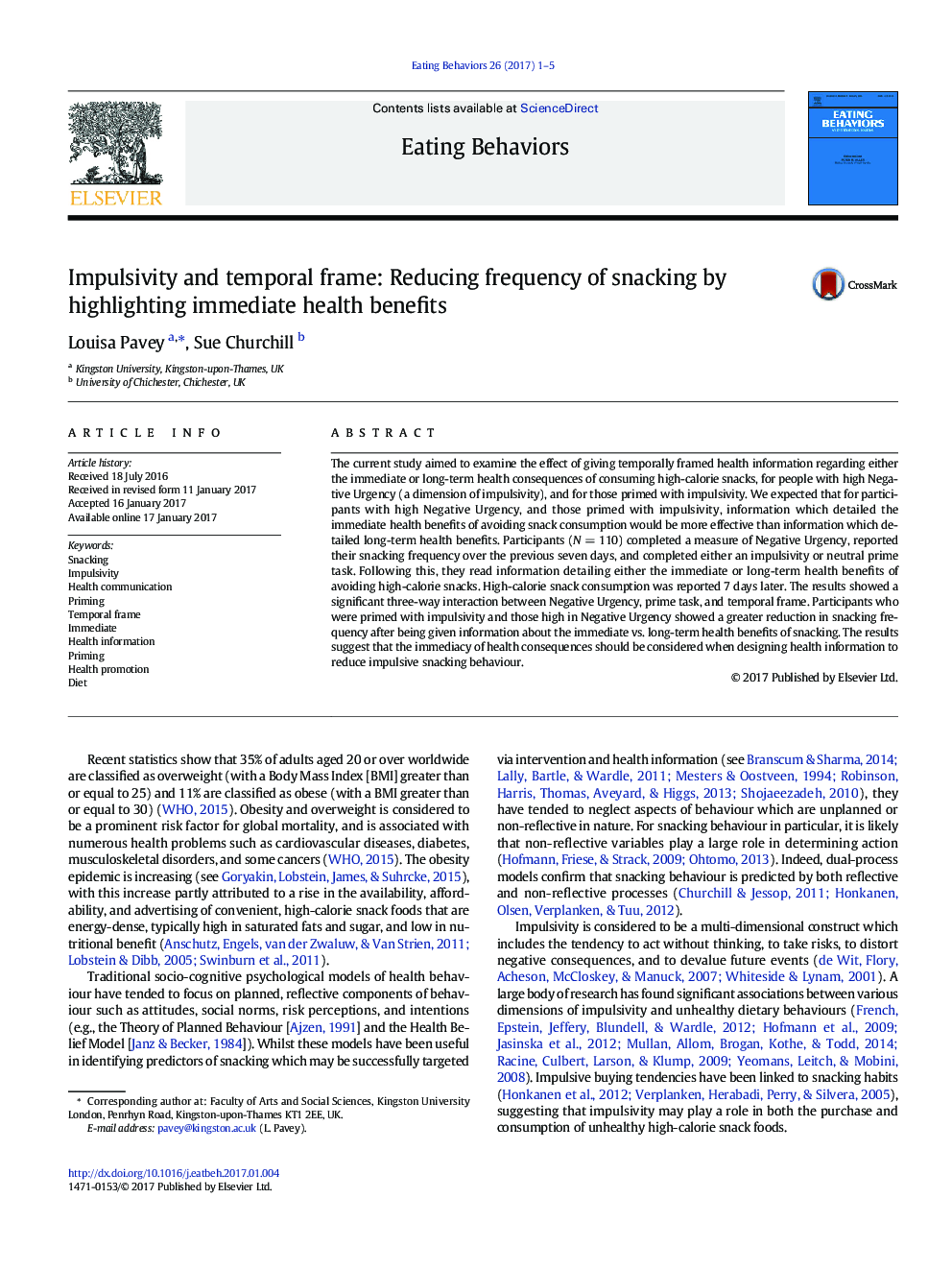| Article ID | Journal | Published Year | Pages | File Type |
|---|---|---|---|---|
| 5038784 | Eating Behaviors | 2017 | 5 Pages |
â¢Impulsivity moderated the effect of temporally framed health information.â¢Interactions occurred for both primed and measured impulsivity.â¢Immediate health benefits are more persuasive for highly impulsive participants.â¢Immediate health benefits of reduced snacking should be conveyed.
The current study aimed to examine the effect of giving temporally framed health information regarding either the immediate or long-term health consequences of consuming high-calorie snacks, for people with high Negative Urgency (a dimension of impulsivity), and for those primed with impulsivity. We expected that for participants with high Negative Urgency, and those primed with impulsivity, information which detailed the immediate health benefits of avoiding snack consumption would be more effective than information which detailed long-term health benefits. Participants (NÂ =Â 110) completed a measure of Negative Urgency, reported their snacking frequency over the previous seven days, and completed either an impulsivity or neutral prime task. Following this, they read information detailing either the immediate or long-term health benefits of avoiding high-calorie snacks. High-calorie snack consumption was reported 7Â days later. The results showed a significant three-way interaction between Negative Urgency, prime task, and temporal frame. Participants who were primed with impulsivity and those high in Negative Urgency showed a greater reduction in snacking frequency after being given information about the immediate vs. long-term health benefits of snacking. The results suggest that the immediacy of health consequences should be considered when designing health information to reduce impulsive snacking behaviour.
